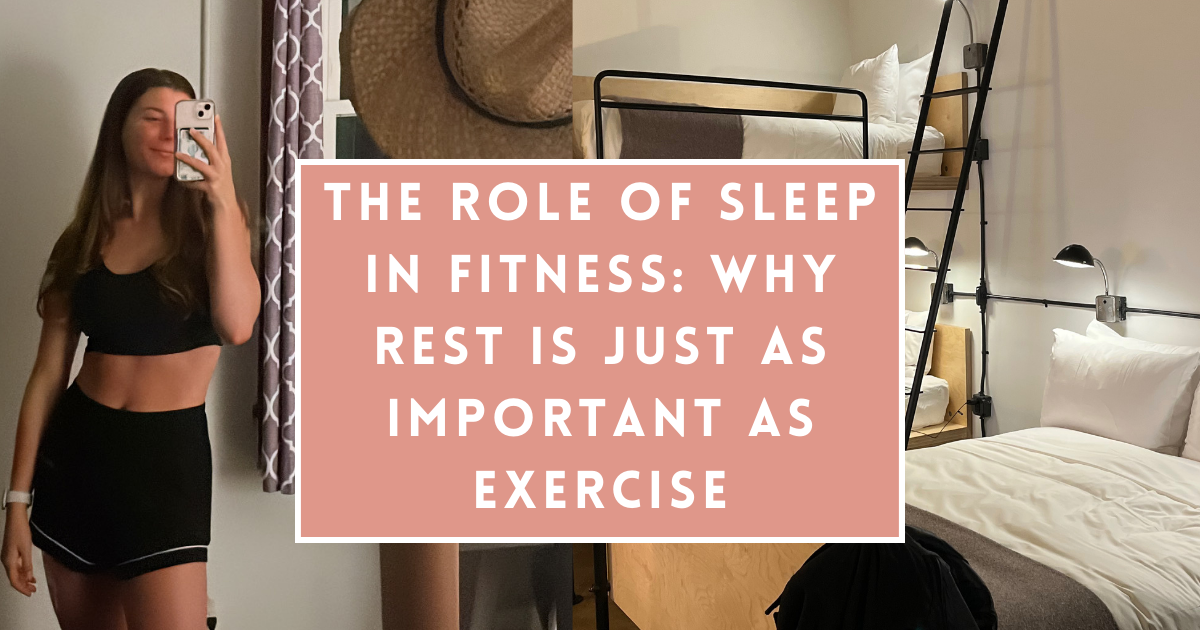
In the quest for optimal health and peak physical performance, we often focus on exercise routines and dietary choices. However, one crucial aspect that is frequently overlooked is sleep. In this blog post, we’ll delve into the often underestimated role of sleep in fitness. You’ll discover why rest is just as important as exercise, and how prioritizing quality sleep can significantly impact your fitness journey.
The Science of Sleep and Fitness
Understanding Sleep Cycles:
To grasp the importance of sleep in fitness, it’s essential to understand the different stages of sleep. Sleep is divided into several cycles, including rapid eye movement (REM) and non-REM sleep. During REM sleep, your brain is highly active, processing emotions and memories. Non-REM sleep consists of deeper stages, essential for physical restoration and repair.
Hormonal Balance:
One critical aspect of sleep’s role in fitness is its impact on hormones. Sleep deprivation disrupts the balance of hormones like cortisol, which can lead to increased stress and muscle breakdown. Conversely, deep sleep encourages the release of growth hormone, essential for muscle repair and recovery.
The Impact of Sleep on Exercise Performance
Cognitive Function:
A well-rested mind is crucial for optimal exercise performance. Sleep enhances cognitive function, including focus, decision-making, and reaction time. Lack of sleep can lead to poor workout choices and increased risk of injury.
Muscle Recovery:
Sleep is when your body prioritizes muscle recovery and growth. During deep sleep stages, blood flow to muscles increases, delivering nutrients and removing waste products. This process is crucial for repairing and building muscle tissue.
Sleep and Weight Management
Appetite Regulation:
Sleep also plays a pivotal role in regulating appetite. Sleep deprivation disrupts the balance of hunger hormones, ghrelin and leptin, leading to increased cravings and poor food choices. This can sabotage your fitness and weight loss goals.
Energy Levels:
Adequate sleep ensures you have the energy required to engage in physical activity. Without proper rest, you’re more likely to feel fatigued and unmotivated, making it challenging to stick to your fitness routine.
Practical Tips for Better Sleep:
1. Establish a consistent sleep schedule.
2. Create a calming bedtime routine.
3. Make your sleep environment comfortable and dark.
4. Limit screen time before bed.
5. Be mindful of your caffeine and alcohol intake.
In the pursuit of fitness excellence, sleep should never be underestimated. It’s the critical ingredient that complements your exercise and nutrition efforts. By understanding the science behind sleep, recognizing its impact on exercise performance, and implementing practical tips for better sleep, you can harness the power of rest to achieve your fitness goals. Remember, rest is not a sign of weakness; it’s a vital part of your path to strength and wellness. So, prioritize your sleep, and watch your fitness journey reach new heights. Sweet dreams and stronger workouts await you.

